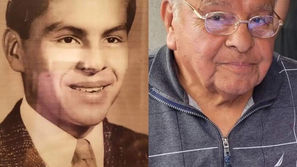Opinion: Internship — road to a job and more
- Jim Glynn
- Jun 19, 2021
- 4 min read
Summer solstice occurs tomorrow. During the summer months, what are you doing about your future? The City of Madera has 10 paid 5-week virtual internships available to residents between the ages of 14 and 20. According to Madera Proud Moments, a city publication, the internships “will focus on recycling and waste, and identifying ways that the cities, schools, and neighboring communities can increase efficiencies.” Contact briana.lewis@engie.com for information.
Kathryn Dill, writing for the Wall Street Journal, claims that students “who perform well in summer internships have long had an advantage with hiring managers once they graduate.” This makes sense because a person who has done an internship already knows many of a corporation’s procedures, expectations, and “business style.”
Personal experience
In the early 1990’s, I had a re-entry student — meaning that she was older than the “typical” college student and had previous work experience — who came to me for help. This particular student had been injured on her previous job and asked me what she needed to do to get a job at one of the social services agencies that did not involve the physical work of her previous factory job.
I told her that, at that time, she probably needed a four-year degree to be a social worker, but I didn’t know what other jobs entailed or required as prerequisites. “Social work,” contrary to public perception, is not a subfield of sociology.
She left my office depressed, and I felt that I had failed her in some way. I made an appointment with the man who was the director of all social services in the county, an elusive man whose office was located in an unmarked building that seemed to have no connection to county services.
During my meeting with him, I learned that his biggest problem was worker turnover. Too many people applied for and accepted jobs, unaware of the pressure and stress that they’d experience. When I asked what I would need to introduce a Human Services Program at my community college, he said, “Above all else, a supervised internship program, making sure that interns are not simply assigned jobs filing case folders for overloaded eligibility workers.”
The program
After I had a rough draft of a two-year program that would satisfy the general education requirements and include the appropriate courses in psychology and sociology, as well as a yet-to-be-written course in human services, I made another appointment with the director.
He gave his stamp of approval and set up appointments for me with the heads of the various departments that served under him. After meeting with these people, I asked them to sit on a community oversight board for the program that was geared toward entry-level positions in the various agencies.
When I left the college in 1998, some of our graduates had moved into middle-management positions, and two had obtained master’s degrees, including the woman who originally came to me for help, and she was also one of the early members of the oversight committee. Both students and employers agreed that internships were a major factor in a student’s success in gaining employment.
Post-pandemic job market
The pandemic that we’ve experienced during the past academic year has disrupted the process of hiring, and employers have been more likely to hire students who interned with their companies, even if the internship had been via Zoom. Kathryn Dill writes, “Among eligible interns from the Class of 2020, 79.9 percent received offers, compared with 68 percent from the Class of 2019 and 70.4 percent from the Class of 2018.”
Dill cites Joshua Kahn, assistant director of research and public policy at NACE (National Association of Colleges and Employers). He told her, “It makes sense that employers would rather make more offers to their interns than they normally would.”
Kahn’s comment supplements Dill’s own observation that “(as) companies grapple with onboarding new employees remotely, pre-existing knowledge of a company, gained through an internship, can become an additional asset.” One such new hire stated, “Even though I lack the technical experience in project management, I still had comprehensive background in how (the company) operates.”
Real world experience
Learning doesn’t just take place in a classroom. Things like internships, job shadowing, and even some part-time employment play an important role for students who are gaining textbook knowledge.
Experiential learning also affords students the opportunity to build networks and establish contacts within the community of their chosen employment. And there is a complementary benefit to employers.
From the employer’s side of the equation, maintaining an internship program yields immediate rewards without a hiring commitment, but there is far more to be gained than that. Employers can evaluate up-and-coming talent. As students report back to the academic program administrator, the educational institution gains important information about current marketplace needs and in-demand skills in the workforce.
Finally, there are long-term benefits that are experienced by students who have served internships before graduating. An NACE survey shows that students who completed at least one internship in college see more success in securing full-time employment and also report higher levels of satisfaction with their career choice.
An additional long-term benefit to students, educational institutions, and industry is that currently employed people who had experiential learning while in school are more likely to support internship programs at their own companies. It’s a cyclical-benefit system that keeps on giving.
• • •
Note: Next Saturday will be the 300th anniversary of vaccinations in the United States. On June 26, 1721, Dr. Zabdiel Boylston administered the first smallpox inoculation in this country. If you haven’t been vaccinated against Covid-19, celebrate by getting your shot before next Saturday.
• • •
Jim Glynn is Professor Emeritus of Sociology. He may be contacted at j_glynn@att.net.


























Comments